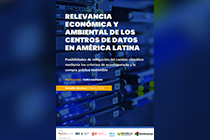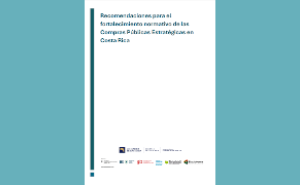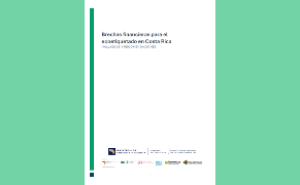Economic and Environmental Relevance of Data Centers in Latin America

- Type: Case study
- Author: Lucía Gascón Castillero, Viviana López Hernández; Oeko-Institute
Data centers have been identified as a high-potential service for climate change mitigation. On the one hand, they are part of the critical infrastructure that powers the digital economy; on the other, data centers consume vast amounts of energy and resources, often contributing to a significant environmental footprint.
Sustainable public procurement (SPP) criteria and ecolabeling can play a key role in promoting energy efficiency, optimizing resource use, and reducing carbon emissions in the sector. Strengthening SPP and ecolabeling standards specific to data centers will help ensure these facilities meet more rigorous sustainability benchmarks – and ultimately encourage operators to adopt cleaner technologies and improve their energy performance.
This study serves as a guiding resource to better understand the key environmental impacts that could be addressed through the inclusion of ambitious criteria within sustainable public procurement and ecolabeling. It offers technical insights to support the prioritization of data centers as a high-impact mitigation opportunity within national public procurement strategies.
The study was developed with support from the EcoAdvance Project: Ecolabels and Sustainable Public Procurement, jointly implemented by German Development Cooperation (GIZ), the United Nations Environment Programme (UNEP), and the Öko-Institut. The project is funded by Germany’s Federal Ministry for the Environment, Nature Conservation, Nuclear Safety and Consumer Protection (BMUV) through the International Climate Initiative (IKI).
The EcoAdvance project is a regional initiative encompassing Brazil, Colombia, Costa Rica, Ecuador, and Mexico. It brings together local and international entities to foster synergies between ecolabeling and sustainable public procurement, promoting more sustainable production and consumption practices while contributing to environmental conservation, biodiversity protection, and climate change mitigation.




